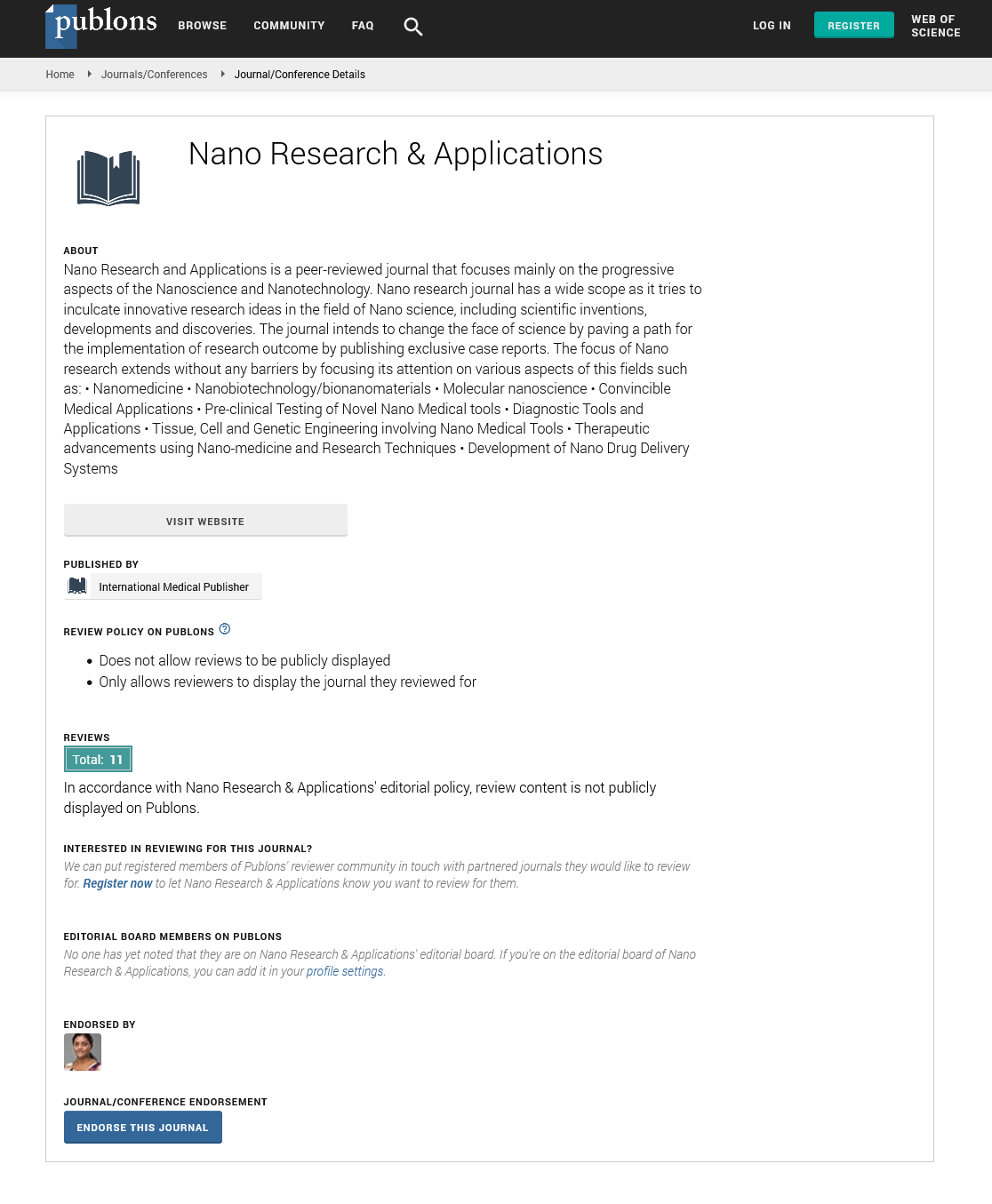ISSN : 2471-9838
Nano Research & Applications
Shadow boxing with laser: Laser damage resistance of three-dimensional photonic crystals
Joint Event on 26th International Conference on Advanced Nanotechnology & 2nd Edition of International Conference on Materials Technology and Manufacturing Innovations
October 04-05, 2018 Moscow, Russia
Lei Pan
Harbin Institute of Technology, China
ScientificTracks Abstracts: Nano Res Appl
DOI: 10.21767/2471-9838-C5-020
Abstract
The laser damage behavior of three-dimensional photonic crystals (3D-PCs) with an opal structure is investigated using both experimental and simulation methods. Polystyrene (PS) colloidal crystals films with a reflection peak at 1064 nm are used as the model material. Disordered films (DF) are fabricated with PS microspheres as contrast samples. The laser-induced damage threshold (LIDT) of 3D-PCs is tested, which is as 2.35 times high as the LIDT of DF. All laser damages are derived from defects in 3D-PCs, implying that the LIDT of ideal 3D-PCs will be significantly increased. The simulation results show that the electric field is contained in the pores of 3D-PCs while it is reduced in the PS microspheres, which may decrease the absorption of laser energy by 3D-PCs. In contrast, the electric field distribution is irregular in DF. Enhanced electric field areas are located in both the pores and microspheres of DF. Considering higher electric field intensity causes more energy absorption and higher temperature, the DF has a lower LIDT. The 3D-PCs structure uses ordered vacancy to contain and strike back laser energy and can increase the LIDT without changing the chemical composition of materials.
Biography
Lei Pan is a Research Associate in School of Chemistry and Chemical Engineering at Harbin Institute of Technology. He has completed his BE and ME degrees at Tianjin University and PhD at Harbin Institute of Technology in 2015. His current research interests mainly focus on “Design and fabrication of well-defined nano-structured materials and their applications for optical and thermal field”.
E-mail: panlei@hit.edu.cn
Google Scholar citation report
Citations : 387
Nano Research & Applications received 387 citations as per Google Scholar report
Nano Research & Applications peer review process verified at publons
Abstracted/Indexed in
- Google Scholar
- China National Knowledge Infrastructure (CNKI)
- Directory of Research Journal Indexing (DRJI)
- WorldCat
- Publons
- Secret Search Engine Labs
- Euro Pub
Open Access Journals
- Aquaculture & Veterinary Science
- Chemistry & Chemical Sciences
- Clinical Sciences
- Engineering
- General Science
- Genetics & Molecular Biology
- Health Care & Nursing
- Immunology & Microbiology
- Materials Science
- Mathematics & Physics
- Medical Sciences
- Neurology & Psychiatry
- Oncology & Cancer Science
- Pharmaceutical Sciences
